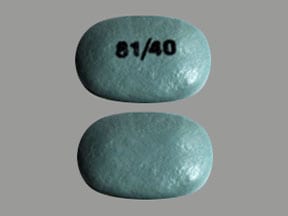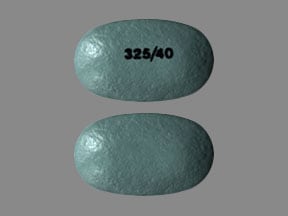What is Yosprala?
Yosprala is a prescription medicine used:
- in people who have had heart problems or strokes caused by blood clots, to help reduce their risk of further heart problems or strokes, and
- who are at risk of developing stomach ulcers with aspirin.
The aspirin in Yosprala is used:
- to help reduce the risk of strokes and death in people who have previously had certain types of "mini strokes" (transient ischemic attacks or TIAs) or strokes.
- to help reduce the risk of heart attack and death in people who have previously had a heart attack or a type of chest pain called unstable angina pectoris.
- to help reduce the risk of heart attack and sudden death in people with a type of ongoing chest pain called chronic stable angina pectoris.
- in people who have had surgery or a procedure to improve blood flow to their heart, such as coronary artery bypass grafting (CABG), or percutaneous transluminal coronary angioplasty (PTCA), and who already have another condition that is being treated with aspirin.
The omeprazole in Yosprala is used:
- to help decrease the risk of developing stomach ulcers due to aspirin in people who are 55 years of age or older, or who have a history of stomach ulcers.
Yosprala should not be used to treat sudden signs and symptoms of a heart attack or stroke. Yosprala should only be used as directed by your doctor to help reduce the risk of further heart problems or strokes.
It is not known if Yosprala is safe and effective in children.
Yosprala has not been shown to reduce the risk of bleeding in the stomach or intestines that is caused by aspirin.
You should not take an aspirin tablet and an omeprazole tablet together instead of taking Yosprala, because they will not work the same way.
What is the most important information I should know about Yosprala?
You should take Yosprala exactly as prescribed, at the lowest dose possible and for the shortest time needed.
Yosprala may help reduce the risk of stomach ulcers from aspirin use, but you could still have bleeding and stomach or intestine ulcers, or other serious stomach or intestine problems. Talk with your doctor.
Tell your doctor if you have unexpected bleeding, if you bleed more than usual, or if your bleeding lasts longer than is normal for you, such as increased bruising or more frequent nose bleeds.
Yosprala contains aspirin, a nonsteroidal anti-inflammatory drug (NSAID) and omeprazole, a proton pump inhibitor (PPI) medicine. Before taking Yosprala, tell your doctor if you take:
- aspirin, or any prescription or over-the-counter medicines containing aspirin or other NSAIDs.
- clopidogrel bisulphate (Plavix). You should not take clopidogrel bisulphate (Plavix) if you take Yosprala.
- ticagrelor (Brilinta).
Do not stop taking Yosprala without talking with your doctor. Stopping Yosprala suddenly could increase your risk of having a heart attack or stroke.
Yosprala can cause serious side effects, including:
- A type of kidney problem (acute tubulointerstitial nephritis). Some people who take proton pump inhibitor (PPI) medicines, including Yosprala, may develop a kidney problem called acute tubulointerstitial nephritis that can happen at any time during treatment with Yosprala. Call your doctor right away if you have a decrease in the amount that you urinate or if you have blood in your urine.
- Diarrhea caused by an infection (Clostridium difficile) in your intestines. Call your doctor right away if you have watery stools or stomach pain that does not go away. You may or may not have a fever.
- Bone fractures (hip, wrist, or spine). Bone fractures in the hip, wrist, or spine may happen in people who take multiple daily doses of PPI medicines and for a long period of time (a year or longer). Tell your doctor if you have a bone fracture, especially in the hip, wrist, or spine.
- Certain types of lupus erythematosus. Lupus erythematosus is an autoimmune disorder (the body's immune cells attack other cells or organs in the body). Some people who take PPI medicines, including Yosprala, may develop certain types of lupus erythematosus or have worsening of the lupus they already have. Call your doctor right away if you have new or worsening joint pain or a rash on your cheeks or arms that gets worse in the sun.
Talk to your doctor about your risk of these serious side effects.
Yosprala can have other serious side effects. See "What are the possible side effects of Yosprala?"
Who should not take Yosprala?
Do not take Yosprala if you:
- are allergic to aspirin, omeprazole, any other PPI medicine, or any of the ingredients in Yosprala. See the end of this Medication Guide for a complete list of ingredients in Yosprala.
- are allergic to any nonsteroidal anti-inflammatory drug (NSAID).
- have a medical condition with severe shortness of breath, chest tightness or pain, coughing or wheezing (asthma), sneezing, runny nose or itchy nose (rhinitis), and growths inside of your nose or sinuses (nasal polyps).
- are taking a medicine that contains rilpivirine (Edurant, Complera, Odefsey) used to treat HIV-1 (Human Immunodeficiency Virus).
Do not give Yosprala to a child who has a suspected viral infection, even if they do not have a fever. There is a risk of Reye's syndrome with Yosprala because it contains aspirin.
What should I tell my healthcare provider before taking Yosprala?
Before taking Yosprala, tell your doctor about all of your medical conditions, including if you:
See "What is the most important information I should know about Yosprala?"
- have any bleeding problems.
- drink 3 or more drinks that contain alcohol every day.
- have kidney or liver problems.
- have been told that you have low magnesium levels in your blood.
- are of Asian descent and have been told that your body's ability to break down (metabolize) omeprazole is poor or if your genotype called CYP2C19 is not known.
- are pregnant or plan to become pregnant. Taking NSAID-containing products like Yosprala at about 20 weeks of pregnancy or later may harm your unborn baby. If you need to take Yosprala when you are between 20 and 30 weeks of pregnancy, your doctor may need to monitor the amount of fluid in your womb around your baby. You should not take Yosprala after about 30 weeks of pregnancy.
- are breastfeeding or plan to breastfeed. The aspirin and omeprazole in Yosprala can pass into your breast milk and may harm your baby. Breastfeeding is not recommended during treatment with Yosprala. Talk to your doctor about the best way to feed your baby if you take Yosprala.
- are a female who can become pregnant. Yosprala may be related to infertility in some women that is reversible when treatment with Yosprala is stopped.
Tell your doctor about all of the medicines you take, including prescription and over-the-counter medicines, vitamins and herbal supplements. Yosprala and some other medicines can interact with each other and cause serious side effects. Do not start taking any new medicine without talking to your doctor first.
Especially tell your doctor if you take:
- clopidogrel bisulphate (Plavix)
- ticagrelor (Brilinta)
- St. John's Wort (Hypericum perforatum)
- rifampin (Rimactane, Rifater, Rifamate Rifadin)
- methotrexate (Otrexup, Rasuvo, Trexall, Xatmep)
- digoxin (Lanoxin)
- a water pill (diuretic)
How should I take Yosprala?
- Take Yosprala exactly as prescribed by your doctor.
- Take 1 Yosprala tablet 1 time each day.
- Take Yosprala at least 1 hour before a meal.
- Swallow Yosprala tablets whole with liquid. Do not split, chew, crush, or dissolve Yosprala.
- If you miss a dose of Yosprala, take it as soon as you remember. If it is almost time for your next dose, do not take the missed dose. Take the next dose at your regular time. Do not take 2 doses at the same time unless your doctor tells you to.
- If you take too much Yosprala, call your doctor or your poison control center at 1-800-222-1222 right away or go to the nearest emergency room.
What should I avoid while taking Yosprala?
Avoid heavy alcohol use during treatment with Yosprala. People who drink three or more drinks that contain alcohol every day have a higher risk of bleeding during treatment with Yosprala because it contains aspirin.
What are the possible side effects of Yosprala?
Yosprala can cause serious side effects, including:
See “What is the most important information I should know about Yosprala?"
- Stomach and intestine problems. Stop taking Yosprala and call your doctor right away if you have symptoms of stomach and intestine problems, including black, bloody, or tarry stools, coughing up blood or vomit that looks like coffee grounds, or severe nausea, vomiting, or stomach pain.
- Kidney failure. Long-lasting (chronic) kidney failure can happen with regular use of aspirin, a medicine in Yosprala. This is more likely to happen in people who already have kidney problems before treatment with Yosprala. Tell your doctor if you have symptoms of kidney failure, including changes in urination, swelling of the hands, ankles or feet, skin rash or itching, or your breath smells like ammonia.
- Liver problems. Long-term use of Yosprala at certain doses may cause liver problems. Tell your doctor if you have symptoms of liver problems, including yellowing of your skin or your eyes, stomach-area (abdominal) pain and swelling, itchy skin, and dark (tea-colored) urine.
- Low vitamin B-12 levels. Low vitamin B-12 levels in your body can happen in people who have taken Yosprala for a long time (more than 3 years). Tell your doctor if you have symptoms of low vitamin B-12 levels, including shortness of breath, lightheadedness, irregular heartbeat, muscle weakness, pale skin, feeling tired, mood changes, and tingling or numbness in the arms or legs.
- Low magnesium levels. Low magnesium levels in your body can happen in people who have taken Yosprala for at least 3 months. Tell your doctor if you have symptoms of low magnesium levels, including seizures, dizziness, irregular heartbeat, jitteriness, muscle aches or weakness, and spasms of hands, feet or voice.
- Stomach growths (fundic gland polyps). People who take PPI medicines for a long time have an increased risk of developing a certain type of stomach growths called fundic gland polyps, especially after taking PPI medicines for more than 1 year.
- Severe skin reactions. Yosprala can cause rare but severe skin reactions that may affect any part of your body. These serious skin reactions may need to be treated in a hospital and may be life threatening:
- Skin rash which may have blistering, peeling or bleeding on any part of your skin (including your lips, eyes, mouth, nose, genitals, hands or feet).
- You may also have fever, chills, body aches, shortness of breath, or enlarged lymph nodes.
Stop taking Yosprala and call your doctor right away. These symptoms may be the first sign of a severe skin reaction.
The most common side effects of Yosprala include: indigestion or heartburn and stomach-area pain, nausea, diarrhea, and chest pain behind the breastbone, for example, with eating.
These are not all the possible side effects of Yosprala. Call your doctor for medical advice about side effects. You may report side effects to FDA at 1-800-FDA-1088.
Yosprala Images
General information about the safe and effective use of Yosprala
Medicines are sometimes prescribed for purposes other than those listed in a Medication Guide. Do not use Yosprala for a condition for which it was not prescribed. Do not give Yosprala to other people, even if they have the same symptoms that you have. It may harm them. You can ask your doctor or pharmacist for information about Yosprala that is written for health professionals.
How do I store Yosprala?
- Store Yosprala at room temperature between 68°F to 77°F (20°C to 25°C).
- Store Yosprala in the original container.
- Keep the container of Yosprala tightly closed to protect from moisture.
- The Yosprala container may contain a desiccant packet to help keep your medicine dry (protect it from moisture). Keep the desiccant packet in the container. Do not throw away the desiccant packet.
Keep Yosprala and all medicines out of the reach of children.
What are the ingredients in Yosprala?
Active ingredients: aspirin and omeprazole
Inactive ingredients: carnauba wax, colloidal silicon dioxide, corn starch, FD&C Blue #2, glyceryl monostearate, hydroxypropyl methycellulose, methacrylic acid copolymer dispersion, microcrystalline cellulose, polydextrose, polyethylene glycol, polysorbate 80, povidone, pre-gelatinized starch, sodium phosphate dibasic anhydrous, stearic acid, talc, titanium dioxide, triacetin, triethyl citrate, yellow iron oxide.
For more information, go to www.genuslifesciences.com or call 1-866-511-6754





